If you suffered a traumatic brain injury as a result of someone’s negligence, it is likely that you will need compensation to help pay for your medical bills, lost income, and mounting additional costs. A Minot personal injury attorney can help.
A traumatic brain injury (TBI) is a serious and debilitating injury that results from a trauma or blow to the head. Brain injuries can occur because of car accidents, motorcycle accidents, truck accidents, slip and falls, and all kinds of other negligent incidents. Head and brain injuries can cause victims serious suffering, life-long complications, and a severe amount of stress.
TBIs are a complicated area of law since the injuries most often do not have a visible element. One cannot simply show a jury their brain injury. Because of this, insurance companies and defense attorneys in general, often downplay TBI injuries.
Though it is true that a brain injury can range in severity, like any other injury, even mild brain injuries should be taken seriously since any injury to the brain can create serious complications to one’s physical, cognitive, and emotional abilities. Quite simply, the brain is critical to human function.
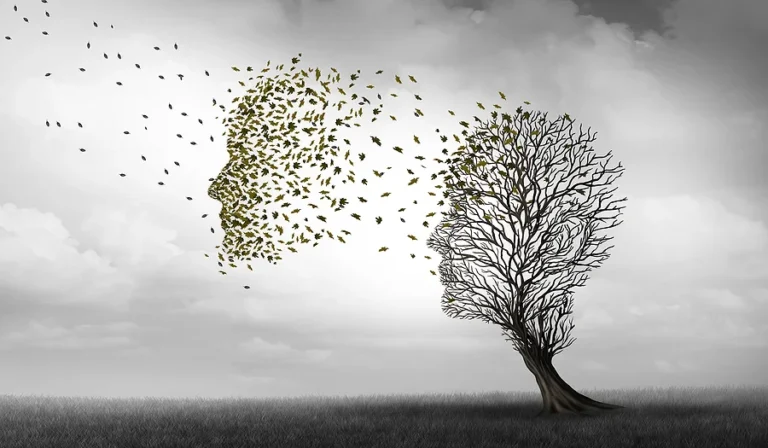
Every year, there are nearly 3 million brain injury related visits to the ER, hospitalizations, and deaths in the United States. These injuries cause a wide variety of symptoms that affect people in every way imaginable. Symptoms for brain injuries can vary based on how your brain injury occurred and the severity of the injury.
In mild traumatic brain injuries (or mTBI), patients often experience loss of consciousness after the injury, the feeling of being dazed or confused, headache, nausea and vomiting, fatigue, speech problems, difficulty sleeping, and loss of balance. Mild brain injuries can also cause blurred vision, ringing ears, or changes in your ability to smell and taste. You may also be sensitive to lights and sounds at this time. It’s also possible to have memory or concentration problems, mood swings, and depression and anxiety along with your brain injury. Although an mTBI often does not have lifelong consequences that we know of, they still create a serious problem for those suffering from them while the symptoms last.
Severe brain injuries carry all the symptoms from a mild TBI and more. A severe brain injury can cause loss of consciousness for minutes to hours, persistent and severe headaches that vary in intensity, convulsions or seizures, and coma. Moderate to severe TBIs can also cause lasting damage to the brain that can create a near unlimited list of permanent consequences that can severely affects one’s quality of life.
There are 1.7 million diagnosed cases of traumatic brain injury that occur in the United States each year. On top of that, 5.3 million people live with a disability caused by TBI in the US alone. Every year there are about 235,000 hospitalizations for TBI, and about 80,000 to 90,000 people each year that experience the onset of long-term disabilities from TBI. Clearly, there are lots of brain injuries happening every day in the United States, but what exactly is causing them?
According to the Mayo Clinic, the most common causes for brain injuries are falls, motor vehicle collisions, violence, and sports injuries. Of course, not all of these are a result of negligence–but the top two, falls and vehicle collisions, often are.
Falls of some type make up 48% of all traumatic brain injury emergency room visits each year in the US. These brain injuries from falls disproportionately affect children and older adults. In fact, 4 out of 5 brain injury hospital visits in older adults were caused by falls.
Clearly, a TBI is one of the most dangerous outcomes that can occur after a slip and fall. This is especially true for slips that take place on hard surfaces where one may fall down and hit their head on the ground. These cases can vary in severity depending on the impact to the head.
Slip and fall accidents can happen anywhere and to anyone. They commonly occur at work places, on construction sites, in parking lots or garages, or in public places like the post office or grocery store. In these cases, you may be able to sue for compensation for your damages. If you believe that your fall-related TBI was the fault of someone else, you may be entitled to compensation.
Motor vehicle accidents–like car accidents, truck accidents, and motorcycle accidents–cause many different types of injuries, including traumatic brain injuries. Since the second leading cause of TBIs are motor vehicle accidents, it is clear that they are a common result of collisions. When a victim of a motor vehicle collision suffers a blow to the head during impact, they can have lasting consequences far beyond a broken bone or laceration. If you’re not wearing a seatbelt, or if the force from the collision is particularly intense, you could easily suffer the consequences from a traumatic brain injury for months, years, or forever.
Brain injuries often result in all types of complications. These complcatication could range from lifelong headaches to a coma or vegetative state. With a TBI, it is also possible to suffer something called brain death. Brain death occurs when there’s no measurable activity taking place in the brain and is most often life-ending. These complications, from mild to severe, are what makes suffering a brain injury so complicated and stressful. Unlike a more straightforward injury, like a broken bone, there is not clear treatment, prognosis, or healing time. These unknown factors often mean that attorneys and injured victims need to work close together to ensure that all damages, and potential future damages, are being taken into account while going through the personal injury claim process.
If you or someone you love has suffered a brain injury from a motor vehicle accident, slip and fall, or any other negligent incident, you may be entitled to receive compensation for your damages. Our lawyers here at Sand Law are ready to take on your case and are eager to help you get the compensation that you deserve. For more information or to schedule a free consultation, please contact us online or at 701-394-5396.
A single act of negligence, like someone taking their eyes off the road for a few seconds, can change someone’s life forever. Unfortunately, these types of accidents occur everyday. Catastrophic injuries are the most severe of injuries, often occurring after extreme incidents, like an accident involving a normal car and a semi-truck.
These injuries are considered catastrophic not only because of the severity of the injuries, but because of the treatment and medical attention that is required. Catastrophic injuries are often debilitating, resulting in permanent or long-term disability or paralysis. These injuries also often call for major surgeries or long-term rehabilitation, which dramatically increase the cost of recovery.
These injuries can occur after many different types of accidents, including motor vehicle accidents, medical malpractice, slip and falls, or nursing home abuse.
In the United States each year there are about six million car accidents. About three million of those accidents result in injuries, while two million experience permanent injuries every year. Out of those accidents, about 27% result in non-fatal injuries. While a majority of car accidents don’t result in death or severe injury, they are still one of the main causes of catastrophic injuries. For instance, car accidents often result in neck and back injuries, which can range from mild to catastrophic.
Medical malpractice can result in catastrophic injuries because this type of malpractice often occurs when someone is already in the care of a doctor’s office or hospital. These patients often have persisting conditions that are further complicated by medical malpractice, resulting in potentially catastrophic injuries. A recent Johns Hopkins study found that medical malpractice was the third-leading cause of death in the United States in 2018, claiming that over 250,000 people die every year from malpractice.
Nursing home neglect falls into the same category as medical malpractice. When someone fails to perform their job without error, such as taking care of a patient or senior, negligence can occur and the senior can get hurt. Nursing home abuse occurs when a senior’s needs are ignored, either by accident or on purpose. These accidents can become catastrophic as many seniors often have preexisting conditions that can lead to complications if not treated.
Slip and fall accidents can occur anywhere, in the parking lot of a small business or inside a supermarket. These cases can differ depending on the location of the fall and the time of year. For example, an accident that occurs because of icy roads may be more severe (and potentially catastrophic) than a slip that occurs during the summer months.
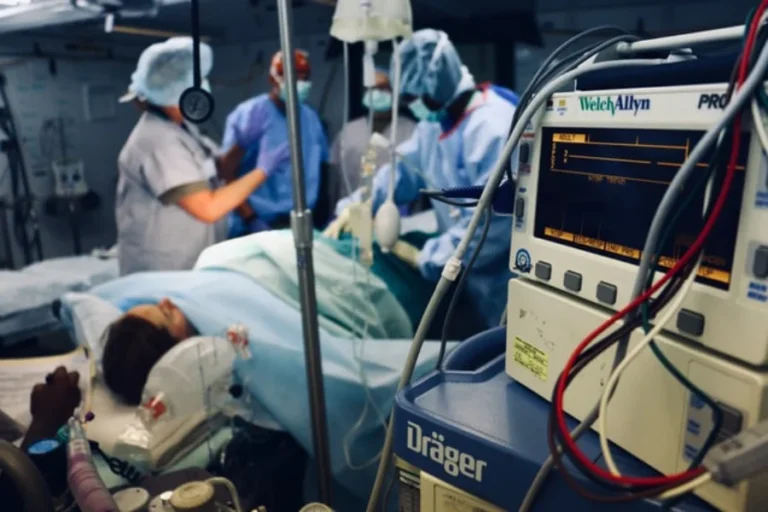
Catastrophic injuries are often known to have lifelong repercussions and aren’t the type of injuries to disappear on their own. Furthermore, these types of injuries nearly always drastically change a victim’s life and can leave them with huge medical bills. Unfortunately, they lower people’s quality of life and can impact a person’s future in a huge unpredictable way.
Some common types of catastrophic injuries include:
Of course, these are just a few of the ways that someone can be catastrophically injured. These injuries often result in paralysis, scarring, disfigurement, and/or paraplegia or quadriplegia.
After your accident, you may be left with a mountain of medical bills and the inability to generate your own income. Thus, an experienced attorney can help you recover damages to cover many of your expenses. You can receive compensation for medical bills (past and future), lost wages (past and future), loss of earning potential, pain and suffering, emotional anguish, scarring and disfigurement, and loss of consortium.
The amount you receive will depend on your specific case and your accident. Hiring an experienced attorney can help insure that you receive the compensation that you deserve following your accident. Your compensation will depend on who was at-fault for your accident as well as the severity of your injury.
Reclaiming quality of life after a catastrophic injury can seem impossible. These times can be really hard, but getting the compensation you deserve may put you on the path to gaining your life back. These types of accidents affect the life of the victim in such a huge way that it can be hard to bounce back, even after receiving compensation. Therefore, catastrophic injuries often require lifelong medical care and lots of doctors appointments. This decrease in quality of life is part of the reason why compensation for catastrophic injuries is often so high.
If you or someone you love has been involved in an accident resulting in a catastrophic injury, Sand Law is here to help you. We want to help you get the most compensation you can so you can return to working on reclaiming your quality of life. Our experienced lawyers are ready to take on your case. For more information, please call 701-609-1510 or contact us online.
A story that continues to make headlines is the ongoing controversy of the injuries faced by the players in the National Football League. Retired NFL players are coming forward with claims that their careers have left them with long term damage that goes beyond worn muscles and broken bones – traumatic brain injuries, commonly referred to as TBIs. Numerous scientific and medical studies have established a link between contact sports like American football to traumatic brain injures.
Despite safety precautions taken like player helmets, there are only so many impacts a human skull can take without negative consequences. Though only a few players spoke up about it at first, the number of afflicted is growing. While TBIs in NFL players are drawing the most attention, TBIs are actually a common injury that can happen in a variety of situations. It is important to understand how they occur and how to recognize the symptoms.
Because of their lasting, often debilitating effects, TBIs are classified as serious injuries. Most often caused by a heavy bump or jolt to the head, TBIs are a serious risk, especially for children or older adults. The Center for Disease Control’s definition of a TBI is “a disruption in the normal function of the brain that can be caused by a bump, blow, or jolt to the head, or penetrating head injury.”
Many different situations can result in a person suffering a TBI. They often present themselves after a person has been involved in a serious car accident, having hit their head during a fall, or, like the NFL players mentioned above, been involved in contact sports for a length of time.
Traumatic Brain Injuries are the result of the brain itself colliding with the inside of the skull due to an impact. Said impact jerks the head around, causing the soft tissue of the brain to bounce off the hard bone of the skull. Though these impacts seem minute, they can actually cause bruising, bleeding, and tearing of the brain tissue. In the event where the impact causes a fracture to the skull, shards of bone may pierce the brain like shrapnel, causing devastating damage.

Medical practitioners use three general categories to differentiate between types of head injuries. All of them can result in a TBI if severe enough.
While it can be considered a TBI in its own right, a concussion is sometimes treated as a minor injury. In actuality it’s a serious injury and should be treated as such, as they are often the precursor to more serious TBIs. They are closed head injuries caused by violent force to the head that cause the brain to bounce around an incur damage.
Even if the symptoms seem minor, every concussion should be treated by a medical professional. Is is common for symptoms to go unnoticed, only to show up hours or days later. There are many things to keep an eye out for, such as:
The circumstances of most TBIs are unique, and as such, the long-term effects can vary. Any injury to the brain is dangerous and can have a marked impact on an individual’s quality of life, but some effects are more serious than others.
TBIs can increase your risk for seizures and memory loss as you grow older. They increase your risk of early-onset Alzheimer’s disease and other degenerative conditions. Some TBIs can be treated, by often the best indicator of improvement is change over time. The effects of TBIs can be gradual, and unfortunately, are not always reversible.
It is important to not overlook the emotional effects of living with a TBI. The injuries themselves can cause mood swings or even whole personality changes. A once calm and collected person can become moody, aggressive, and even violent. The physical effects like loss of mobility can lead to bouts of depression, all of which can take a toll on the injured and everyone they are close to.
TBIs can be a harrowing experience for those they affect, and can have lasting results that impact the rest of their lives. This can be compounded if the injury was due to the negligence of another party and could have been prevented. It can change career opportunities and the afflicted’s entire personality, and lead to isolation, depression, and expensive medical bills as they try to navigate their new circumstances.
When going through this type of injury, personal injury attorneys are one of the best resources to help you through this trying time. They can take negligent parties to court and argue on your behalf for compensation to alleviate the damages associated with treating and living with these injuries. The experienced team at Sand Law is ready to help. Call us today at (701) 394-5396 or fill out our online contact form.
One of the most serious injuries that a person can have happen to them is a Traumatic Brain Injury (or TBI for short.) These are serious, often debilitating, sometimes deadly injuries resulting from heavy trauma to the head. They are the most commonly the result of slip and fall accidents or vehicle accidents, and are not always identifiable at first. Even a minor brain injury should be taken as seriously as obvious head trauma.
TBIs can have serious effects on a person’s physical and mental abilities. At Sand Law, we take traumatic brain injuries seriously. If your injury, or the injury to a loved one, was caused by the negligence of another party, you are entitled to file a claim against them to seek damages for the injury. These can go towards covering medical costs relating to the injury, as well as other damages that can result such as lost wages.
Traumatic brain injuries can manifest themselves in a variety of ways, depending on which sections of the brain were affected by the impact. The brain is a complex organ responsible for a myriad of functions, and as such the symptoms of a brain injury can range from banal to serious. The most common symptoms include the following:
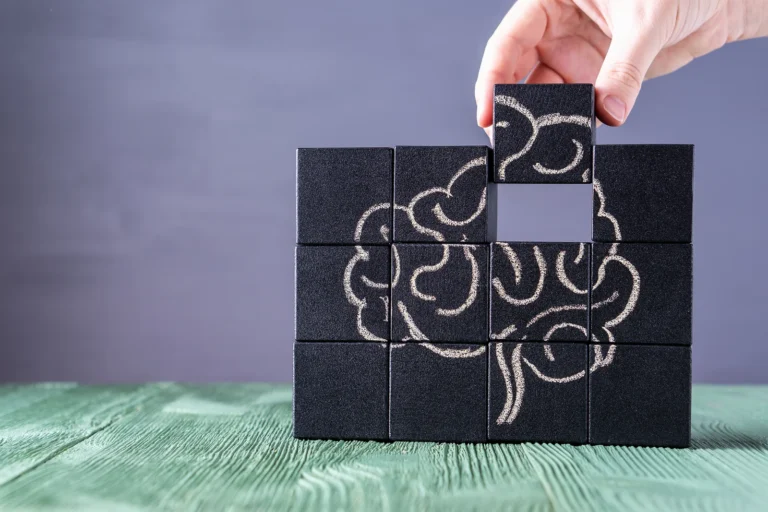
Traumatic Brain Injuries do not always result from a direct blow to the head. The human brain is not firmly seated in the skull, and has a soft consistency. Using a car accident as an example, even if you do not directly strike your head on anything in the vehicle, the forces whipping your body back and forth can cause your brain to bounce off the inside of your skull. This is known as a coup-contrecoup injury.
As fine-tuned an imaging tool as an MRI is, they can often miss microscopic lesions in the brain, or other damage to individual neurons. It is fairly common for a patient to have a negative MRI yet clearly present some of the signs of TBIs as listed above.
This is a myth that can emerge during court proceedings. Often, defense lawyers will try to minimize the extent of a brain injury and insist the claimant will quickly recover. But those afflicted with TBIs are still symptomatic after a year, with many experiencing persistent or worsening symptoms.
Both closed and open head injuries can result in concussions, and as such they are the most common type of brain trauma. They can be caused by direct head impacts or whiplash-type movements. The aftereffects of a concussion are known as post-concussion syndrome, a disorder that manifests with dizziness, headaches, sleeping difficulties, depression, and memory loss.
Concussions should never be ignored and warrant immediate medical attention, especially because of the risk of second-impact syndrome (SIS). SIS occurs if someone suffers another concussion before the symptoms of the first are resolved, and can prove fatal.
Contusions are the result of direct impacts to the head that causes severe bruising to the brain tissue itself, or causes bleeding inside the skull. Often, these injuries will require surgery to reduce swelling inside the skull, as such swelling can result in permanent brain damage or death.
Often the result of a vigorous shaking or twisting of the head, diffuse axonal injuries occur when the brain lags behind the movement of the skull, causing tears in the delicate tissue. Similar to whiplash, the rapid back and forth movement of the brain disrupts nerves, and often causes a loss of consciousness at the time of trauma.
Perhaps the most self-explanatory injury on this list, penetration injuries are anything that forces matter from the skull into the brain. Anything that causes a foreign object to penetrate the skull and brain falls under this category, and most often these injuries are fatal.
A mass of clotted blood or pronounced swelling in the area between the inside of the skull and the brain itself.
All different types of accidents can result in many different types of injuries. Some of these injuries can be quite severe and one of the most serious injuries we see at Sand Law PLLC are traumatic brain injuries, also known as TBIs. A traumatic brain injury is defined as any trauma to the head that causes the brain to not function normally, either temporarily or permanently. Sand Law’s TBI lawyers know that for TBI victims, a head injury is a lot more than a simple definition. They are extremely disruptive, painful, and debilitating; which is why we are passionate about helping North Dakotans get the compensation they need after a TBI caused by negligence.
If you’ve suffered a TBI or serious head injury in North Dakota due to another’s negligence, contact the experienced TBI lawyers at Sand Law PLLC today by calling 701-394-5396 for a free consultation.
A traumatic brain injury (commonly abbreviated, TBI) is defined as damage to the brain caused a hit or blow to the head. Commonly brain injuries occur during car crashes, motorcycle accidents, slip and falls, and sports injuries.
A TBI can be something more common, like a mild concussion, all the way to severe permanent brain damage that has serious consequences and may even result in death. Depending on the type and severity of brain injury, one may find themself on bedrest or being rushed in life-saving surgery.
Brain injuries can lead to physical disabilities, and emotional problems, cognitive delays, loss of abilities, and changes in emotions and personality.
No matter what the cause or severity of a TBI, one thing is for sure. If you suffer a brain or head injury, you will have serious medical bills, lost wages, and all kinds of other costs that will put a financial strain on you and your family.
If you suffered a TBI due to another’s negligence, you do not have to take on these costs by yourself. If your brain injury occurred in North Dakota, contact the experienced brain injury attorneys at Sand Law PLLC. We are here to help!
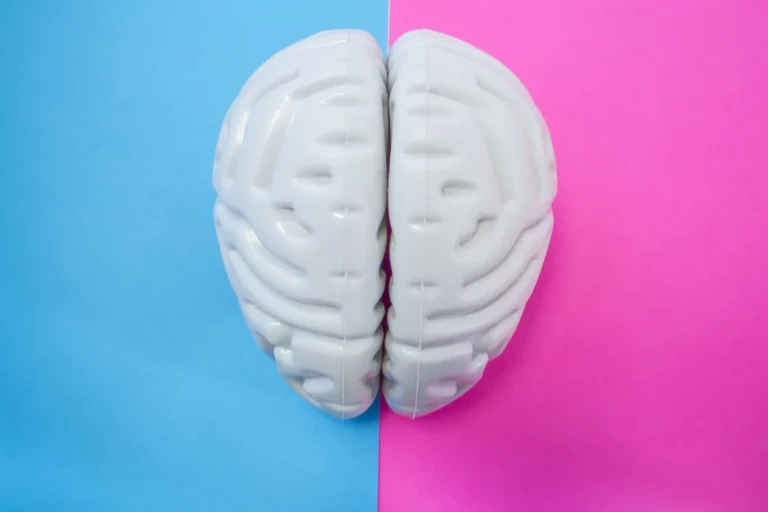
TBIs commonly occur during:
Every victim has different reactions to a TBI, including physical pain, sensory issues, or cognitive disabilities. These symptoms can last a few week, a few years, or for a lifetime. Clearly, brain injuries are one of the most serious injuries someone can suffer, since the brain controls everything.
To understand TBIs, it will help to understand how medical professionals often classify them.
TBIs are classified by medical professionals as mild, moderate, and severe. These terms, however, can be misleading since a “mild” TBI can still have serious repercussions on one’s life.
According to Northeastern University, the classifications for TBIs are based on the following symptoms:
According to the National Institute of Neurological Disorders and Strokes, symptoms of a traumatic brain injury often include:
These symptoms may be experienced with a mild TBI, but they may also be experienced with moderate or severe TBIs, just with enhanced symptoms. This might mean that instead of occasional headaches, the TBI victim suffers from constant headaches.
The damages caused by head injuries, and the resulting TBI, can be caused by different situations, like:
The first thing you should do is seek medical attention right away. The brain is an extremely sensitive and important organ; any injury to your head or brain should be treated seriously. Explain all your symptoms to your healthcare professional and agree to any and all testing.
Your doctor may bring in a specialist to assess your physical injuries, brain and nerve functioning, and level of consciousness.
Once you have ensured that you medical needs are taken care of, consider contacting an experienced Traumatic Brain Injury attorneys in North Dakota. TBI cases are complicated and require extensive resources to get proper compensation for current damages and future damages that may arise.
Be sure to keep all your records, medical bills, gather witnesses, and keep track of any changes in your symptoms. It is also important to consider which people in your life could testify to changes in your behavior, memory, or mood, like a spouse or parent.
TBIs are serious, but they are also an “invisible” injury so proving the injury and the damages it has caused will require the expertise of a serious personal injury legal team.
Sand Law protects clients in Williston, Williams County, and across North Dakota who have suffered a TBI due to an accident caused by another’s negligence. Our team of experienced and dedicated TBI attorneys are skilled at helping traumatic brain injury victims get the compensation they deserve, even the injury cannot be “seen” by the insurance company or jurors.
Our offices are conveniently located in Watford City, Minot, Williston, and Bismarck to serve all of North Dakota. Contact Sand Law today to schedule your free consultation by calling (701) 394-5396 or by filling our our contact form. We look forward to speaking with you.
Traumatic Brain Injuries (TBI) can be caused by a lot of different types of accidents. But when a TBI is caused by the negligence of another person, a bad situation is made even worse as a plethora of legal problems enter the picture. Almost any type of TBI can cause serious issues for the victim and their family. At Sand Law PLLC, we see the devastating effects of traumatic brain injuries every day. We understand that although a TBI can not be easily seen, like a broken arm or even a herniated disc on a scan, they still deserve to be taken seriously. We understand that a TBI is more than a simple term; TBIs are extremely painful and debilitating and can cause devastating life changes. At Sand Law, we are passionate about helping North Dakotans recover from a TBI while getting the compensation they need.
If you’ve suffered a TBI after an accident caused by another’s negligence, contact the experienced TBI lawyer at Sand Law today by calling 701-609-1510 for a free consultation.
A traumatic brain injury is an injury to the brain that occurs during a sudden impact or trauma to a victim’s head, either from a penetrating (open-head) injury or a non-penetrating (closed-head) injury.
During the initial head trauma that causes a TBI, the following types of injuries can occur to the brain:
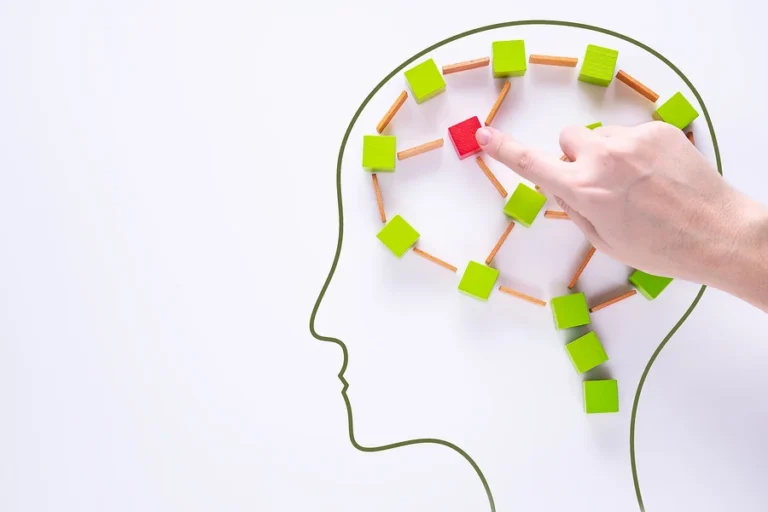
TBIs typically occur during accidents that are sudden impact and leave little to no time for a person to protect their head. Some of the most common types of accidents that cause TBIs are:
TBIs are often classified into three categories: mild, moderate, and severe. These terms can be a bit misleading since the tern “mild” TBI makes it sound like it is not big deal, when in fact, a mild TBI can be extremely disruptive to one’s life. Nonetheless, these three classifications are commonly used in the medical field, and therefore are helpful in understanding TBI injuries caused by accidents.
According to Northeastern University, the classifications for TBIs are based on the following symptoms:
According to the National Institute of Neurological Disorders and Strokes, symptoms of a traumatic brain injury often include:
These symptoms are just as common with a mild TBI as they are with a severe TBI, it’s just the severity of the symptoms that vary.
TBIs can be caused by different situations during accidents and other situations that result in varying types of brain injuries and damage. For example:
Seek medical attention right away. The brain is an important organ and any injury to the brain should be treated as serious. Even if you don’t think you have serious TBI, still seek medical attention. So often, clients say they though they were fine until they started experiencing blackouts and lost memory weeks later.
The hospital or urgent care center may insist that you see a specialist to assess your TBI. Be sure to follow through with this care.
Document your injuries. Proving a brain injury in court can be tricky, so be sure to keep all your medical records, bills, scans, witnesses’ names and numbers, and a journal of your symptoms. It is also important to have people in your life document any changes in your behavior, memory, or mood.
TBIs are often called the “invisible” injury because they are so serious but cannot easily be seen in a courtroom or a photograph. This does not mean they cannot be proven or that compensation is not possible. It just means you need to be more diligent about documenting your injury.
Contact an experienced TBI attorney. TBI cases can be complicated and will require a personal injury firm that has extensive resources and networks to ensure your TBI case is well researched so that you get the compensation you need.
Sand Law is serious about getting North Dakotan the compensation they need after another person’s negligence caused them to suffer a traumatic brain injury. Our team of experienced and dedicated TBI attorneys are skilled at helping traumatic brain injury victims get the compensation they deserve, even if the injury if invisible.
Our offices are conveniently located in Watford City, Minot, Williston, and Bismarck to serve all of North Dakota. Contact Sand Law today to schedule your free consultation by calling 701-609-1510 or by filling our our contact form. We look forward to speaking with you.